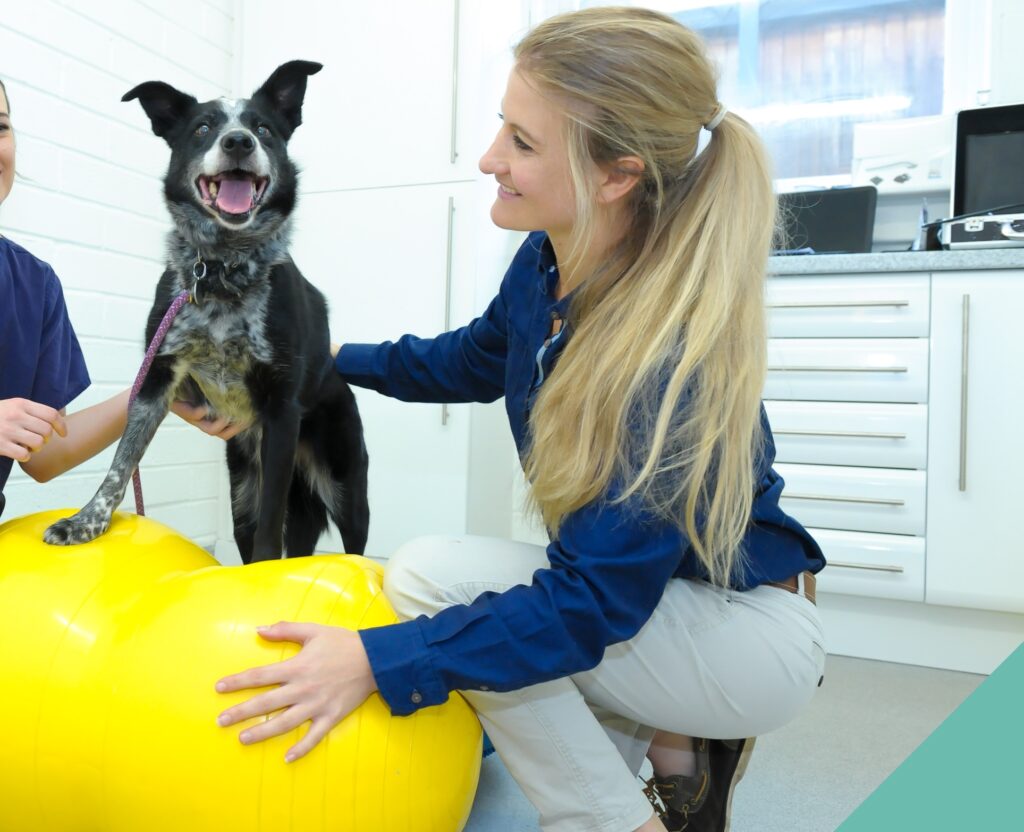
Physiotherapy is a well-established, widely-practiced treatment that can greatly benefit senior pets. Below we take a closer look at physiotherapy and how it could help your pet.
What is physiotherapy?
Physiotherapy can really help senior patients who have degenerative conditions such as osteoarthritis and lumbosacral disease (back pain).
Physiotherapists sometimes use high tech equipment such as special ultrasound machines, laser therapy, TENs therapy, and pulse wave therapy. Often, though, all they need are their hands to gently stretch and move your pet’s legs in certain ways. Sometimes, a physiotherapist might prescribe an individual exercise plan for your pet to follow.
What is the aim of physiotherapy?
The aim of physiotherapy in senior pets is to improve their muscle strength, increase stamina, and maintain joint flexibility so they can stay mobile and comfortable for as long as possible.
Managing degenerative joint disease (such as osteoarthritis and age-related spinal disease) is a key focus for veterinary physiotherapists. Painful joints lead to painful muscles because pets change their gait (how they walk) to reduce the pain they feel. Walking and running differently can strain your pet’s body; under-used muscles injure easily and redundant muscles (no longer used properly) will atrophy (become smaller).
Physiotherapy helps to reduce and slow down the progression of many age-related conditions.
What are the benefits of physiotherapy?
Physiotherapists assess your pet’s musculoskeletal system (bones and muscles). Your pet might need treatment for a current condition or might benefit from preventative treatment to correct muscle imbalances and joint weakness.
If your pet has undergone surgery or is booked in for an operation, physiotherapy can help make their recovery quicker and more comfortable.
Physiotherapists work closely with your vet to monitor your pet’s progress. Together, they review how changes to your pet’s medication, exercise regime and lifestyle could improve their overall quality of life. A physiotherapist will explain how to carry out simple exercises with your dog at home. They might also suggest:
- Adjusting your home to make access easier (ramps or extra steps)
- Modifying your pet’s exercise routine and the games you play (for example, sometimes ball chasing can strain joints.)
- Keeping your pet’s joints warm during colder weather (warm beds and massage helps)
If you would like more information about how physiotherapy could help your pet, or to arrange for your pet to have a full examination, please contact us.
More information about how physiotherapy can help treat dogs with arthritis can be found here.






